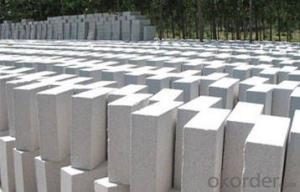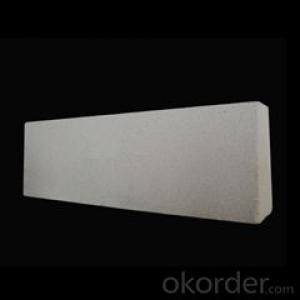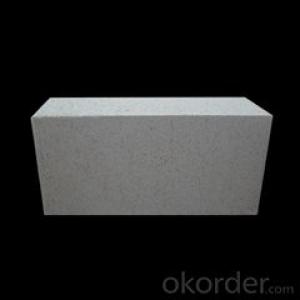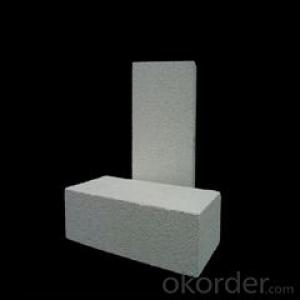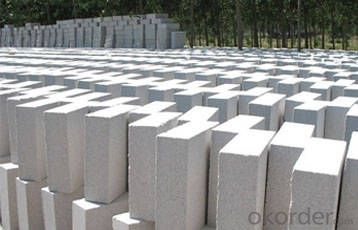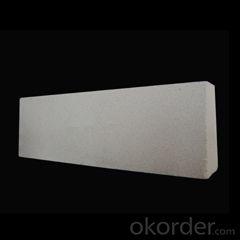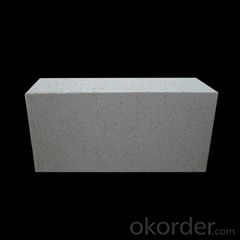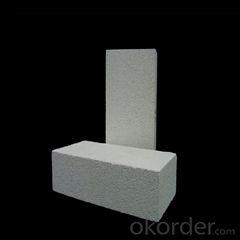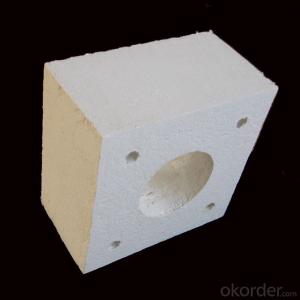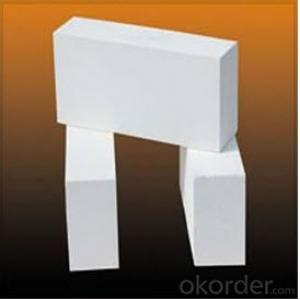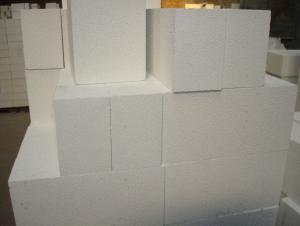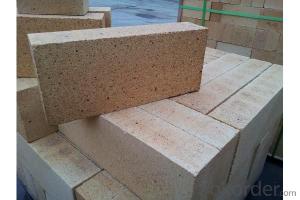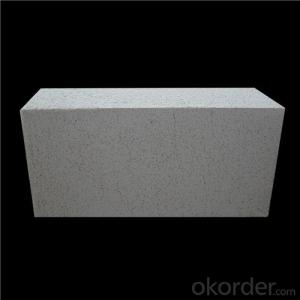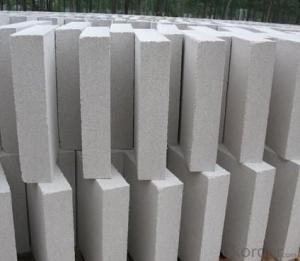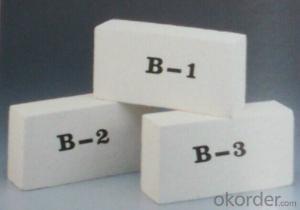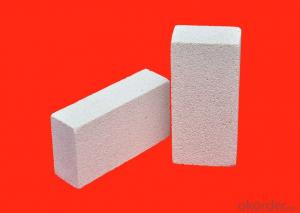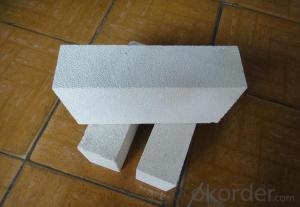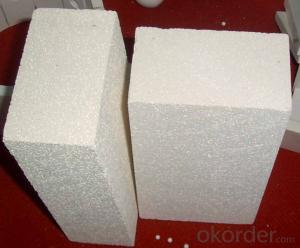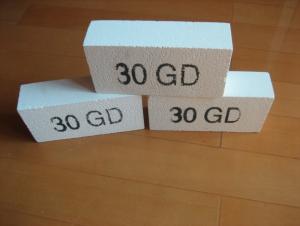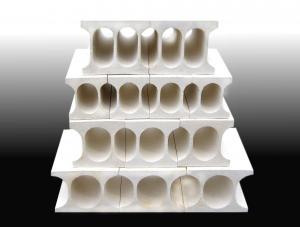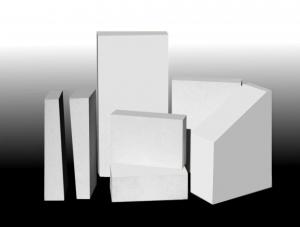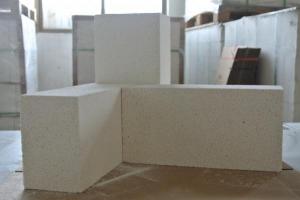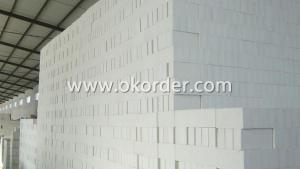Insulating Fire Brick - Refractory Mullite Insulating Refractory Brick JM 97
- Loading Port:
- Shanghai
- Payment Terms:
- TT OR LC
- Min Order Qty:
- 5000 kg
- Supply Capability:
- 10000 kg/month
OKorder Service Pledge
OKorder Financial Service
You Might Also Like
Refractory mullite insulating refractory brick JM 23
Okorder series heat insulation brick
Okorder series thermal insulation brick is an effective, energy saving, low carbon, environmental protection advanced, according to the ASTM standard manufacturing products. Okorder series products are best Li Ning and insulation in all types of industrial furnaces in the metallurgical field, aluminum, petrochemical, electric power and glass ceramic materials. They can be used as part of the working layer of thermal insulation or non - melting. Products have been widely used in the following furnace, achieved satisfactory results.
Application of heat preservation brick
Metallurgical Industry: blast furnace, hot blast furnace, heating furnace, etc..
Petrochemical Industry: ethylene cracking furnace, hydrogen production furnace, primary reformer, heating furnace, etc..
Ceramic industry: roller kiln, kiln, etc..
Glass industry: glass furnace regenerator, etc.
Carbon industry: carbon furnace, etc..
Aluminum electrolysis industry: aluminum reduction cell, etc.
Other industries: tunnel kiln, shuttle kiln, etc..
Advantages of heat insulation brick
Low thermal conductivity: more porosity will bring good thermal insulation effect, energy saving.
High crushing strength: high crushing strength, volume stability.
Low heat storage: small heat storage to absorb more heat, energy-saving effect is obvious.
Gao Chundu: iron, alkali metal impurity content is low.
The precise size: Brick size processing precision, special shape cutting and grinding, accelerate the brickwork.
Insulating brick picture
Common problem solutions
1. What products do you have?
We have all kinds of refractory bricks, refractory casting materials, mortar, cement, ceramic fiber products, etc..
Or you can browse our products to choose what you need.
2. How to control product quality?
With strict quality control system throughout the material selection and production process, we have the quality of refractory materials and ceramic fiber products to meet customer requirements.
From the selection of raw materials, the quality of our control to start. The quality certificate of the raw material is required, each batch of the products are to be tested in the use of the forward line. In the production process, the quality control by the workers, and then each piece of classification, and through the quality supervision and inspection.
3. Can you give me a brief introduction to the application of your product?
My company is mainly engaged in refractories in the steel, cement, glass, ceramics, petrochemical, electric power and other industries.
4. What information do you need if I need you?
In order to select the right products, we will provide us with information, such as the United States, technical data, order quantity, product application, etc..
If you have any questions, please contact us.
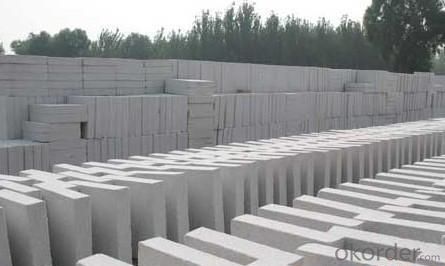
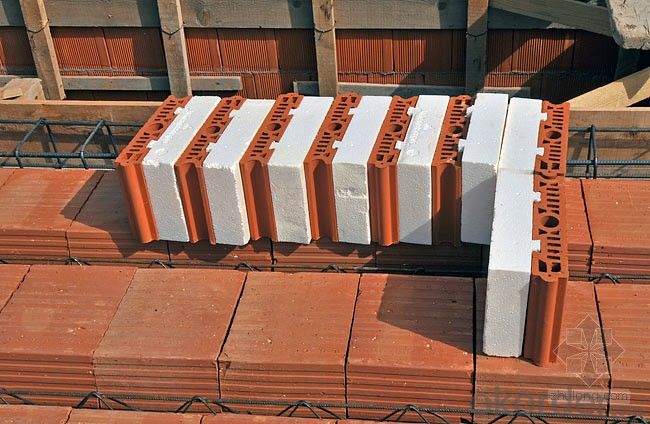
- Q: Can insulating fire bricks be used for insulation in cement kilns?
- Yes, insulating fire bricks can be used for insulation in cement kilns. Insulating fire bricks have excellent thermal insulation properties and can withstand high temperatures, making them suitable for insulating cement kilns and reducing heat loss.
- Q: Can insulating fire bricks be used in high-temperature insulation for aerospace applications?
- Yes, insulating fire bricks can be used in high-temperature insulation for aerospace applications. Insulating fire bricks are made from lightweight refractory materials that have high insulating properties and can withstand extreme temperatures. These bricks have low thermal conductivity, which allows them to effectively reduce heat transfer and maintain the desired temperature inside aerospace components. Aerospace applications often involve high-temperature environments, such as in rocket engines, exhaust systems, and thermal protection systems. Insulating fire bricks can be used in these applications to provide thermal insulation, protecting sensitive components from excessive heat and preventing heat loss to the surroundings. Additionally, insulating fire bricks are known for their excellent resistance to thermal shock, meaning they can withstand rapid temperature changes without cracking or degrading. This property is crucial in aerospace applications where components are subjected to extreme temperature variations during launch, re-entry, or other operational phases. Moreover, insulating fire bricks have lightweight properties, which can be advantageous in aerospace applications where weight reduction is critical for fuel efficiency and overall performance. By using insulating fire bricks, aerospace engineers can achieve effective thermal insulation while minimizing the added weight to the system. Overall, insulating fire bricks offer a viable solution for high-temperature insulation in aerospace applications. Their high insulating properties, resistance to thermal shock, and lightweight nature make them suitable for protecting critical aerospace components in extreme temperature environments.
- Q: Are insulating fire bricks resistant to erosion?
- Yes, insulating fire bricks are resistant to erosion.
- Q: Do insulating fire bricks require any special fireproofing treatments?
- No, insulating fire bricks do not require any special fireproofing treatments. Insulating fire bricks are made from lightweight materials with high insulating properties, such as refractory clay or ceramic fibers. These materials are inherently fire-resistant and can withstand high temperatures without the need for additional fireproofing treatments. However, it is important to ensure proper installation and usage of insulating fire bricks to maximize their effectiveness and longevity.
- Q: Can insulating fire bricks be used in the construction of glass melting tanks?
- Yes, insulating fire bricks can be used in the construction of glass melting tanks. Insulating fire bricks are specifically designed to withstand high temperatures and provide excellent insulation properties. This makes them ideal for use in glass melting tanks, where extreme temperatures are required to melt the glass. The insulating properties of these bricks help to minimize heat loss and maintain the desired temperature within the tank, resulting in more efficient and cost-effective glass melting processes. Additionally, insulating fire bricks are durable and resistant to thermal shock, making them a reliable choice for the construction of glass melting tanks.
- Q: Is it possible to recycle broken insulating fire bricks?
- Yes, it is possible to recycle broken insulating fire bricks. These bricks can be crushed and used as aggregate in the production of new bricks or other construction materials. Additionally, they can be ground into a fine powder and used as a raw material in the manufacturing of refractory products. Recycling broken insulating fire bricks helps reduce waste and conserve resources.
- Q: Are insulating fire bricks suitable for use in furnaces?
- Indeed, furnaces can indeed benefit from the utilization of insulating fire bricks. These exceptional bricks are meticulously crafted to endure extreme temperatures and deliver remarkable insulation capabilities. By employing lightweight materials with minimal thermal conductivity, they effectively retain heat and minimize energy dissipation within the furnace. Withstanding temperatures up to 3000°F (1650°C), these bricks are extensively employed in a range of furnaces, such as kilns, incinerators, and industrial furnaces. Their insulation properties significantly enhance energy efficiency and curtail fuel consumption, rendering them a preferred selection for furnace applications.
- Q: Can insulating fire bricks be used in the construction of glass bottle production furnaces?
- Yes, insulating fire bricks can be used in the construction of glass bottle production furnaces. Insulating fire bricks have high thermal resistance and low thermal conductivity, making them ideal for use in furnaces where high temperatures need to be maintained. Additionally, they help to reduce heat loss, improve energy efficiency, and provide insulation against heat transfer, which is crucial in glass bottle production.
- Q: Can insulating fire bricks be used in both residential and industrial applications?
- Yes, insulating fire bricks can be used in both residential and industrial applications. They are commonly used in residential fireplaces and wood-burning stoves for their insulating properties, as well as in industrial furnaces, kilns, and ovens to retain heat and improve energy efficiency.
- Q: Can insulating fire bricks be cut or shaped to fit different spaces?
- Indeed, it is possible to cut or shape insulating fire bricks to suit various spaces. These bricks are crafted from lightweight materials, enabling effortless customization using ordinary tools like saws, knives, or rasps. Consequently, they can be perfectly tailored to fit fireplaces, kilns, furnaces, and other high-temperature settings. Nevertheless, it must be emphasized that caution must be exercised while cutting or shaping insulating fire bricks, as they may generate dust or debris.
Send your message to us
Insulating Fire Brick - Refractory Mullite Insulating Refractory Brick JM 97
- Loading Port:
- Shanghai
- Payment Terms:
- TT OR LC
- Min Order Qty:
- 5000 kg
- Supply Capability:
- 10000 kg/month
OKorder Service Pledge
OKorder Financial Service
Similar products
Hot products
Hot Searches
Related keywords
